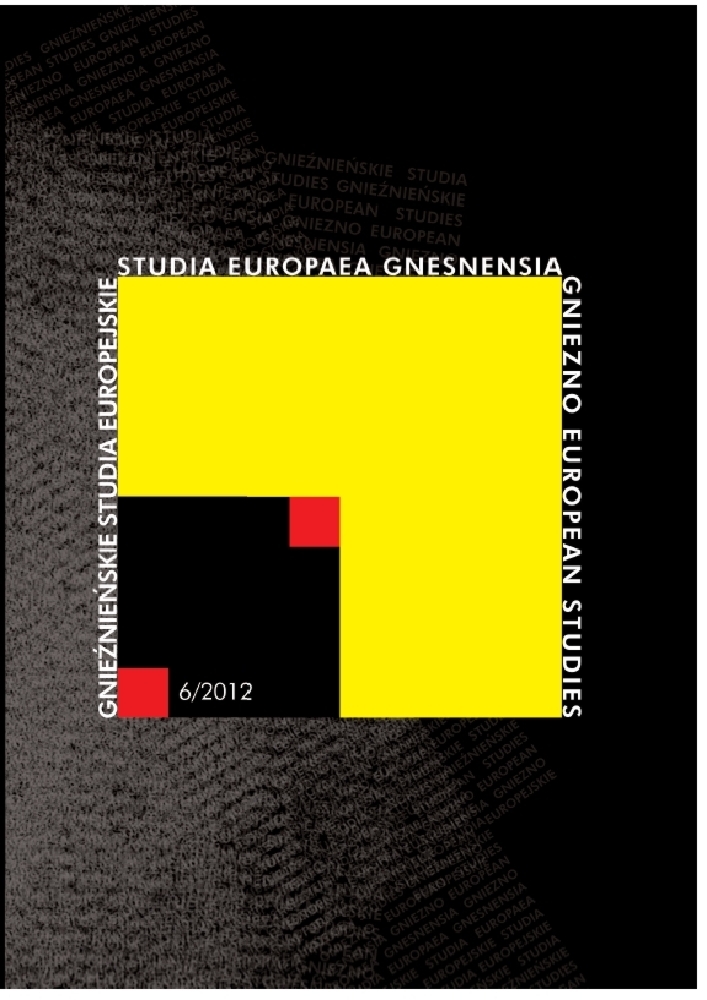Resumen
Theodulf of Orleansmay easily be called an arch-Christian eulogist of the antique heritage. His legacy is replete with classical influences. The emulation of the antique which may be noticed with the Visigoth scholar was nevertheless in line with the deliberately adopted method stemming from the Augustan programme. The exceptional aptitude of the poet combined with the skill of commanding language to his needs allowed him to create highly diverse and unconstrained literary pieces, where the reader finds combinations of elements taken from classical culture with the articles of faith and piety, occurring without conflict and artificiality but in harmony. “Versus contra iudices” proves that Theodulf was a master at composing anecdotal coincidence of two worlds and simultaneously, two sensitivities as well. Thanks to the gifted Visigoth, myth and classical tradition became something in the way of early medieval philosophia moralis.
Citas
Augustyn, Państwo Boże XIX 12, tłum. J. Salij, Kęty 2002.
Banniard M., Geneza kultury europejskiej V–VIII w., tłum. A. Kuryś, Warszawa 1995.
Boecjusz, O pocieszeniu, jakie daje filozofia, tłum. W. Olszewski, Warszawa 1962.
Bredin H., Alcuin (c. 735–804) and Theodulf of Orleans (died 821), [w:] Ch. Murray, Key Writers on Art: From Antiquity to the Nineteenth Century, Taylor & Francis Books 2003, s. 22–28.
Chudzikowska-Wołoszyn M., The Anti-Corruption Manifesto of Theodulf of Orleans. A Contribution to a Discussion about Literature of the Carolingian Era, Echa Przeszłości 12, 2011, s. 17.
Curtius E.R., Literatura europejska i łacińskie średniowiecze, tłum. A. Borowski, Kraków 2005.
Duemmler E., Theodufi carmina, MGH, Poetae I, Berolini 1881.
Freeman A., Theodulf of Orléans and the Libri Carolini, Speculum 32, 1957, s. 663–705. DOI: https://doi.org/10.2307/2850291
Freeman A., Theodulf of Orléans: A Visigoth at Charlemagne’s Court, Colloque internationale du C.N.R.S. tenu a La Fondation Singer-Polignac — L’Europe héritiere de l’Espagne wisigothique, Paris 1990.
Goodman P., Alcuin: the Bishops, Kings, and Saints of York, Oxford 1982. DOI: https://doi.org/10.1093/actrade/9780198222620.book.1
Le Goff J., Kultura średniowiecznej Europy, tłum. H. Szumańska-Grossowa, Warszawa 1970.
Liersch C., Die Gedichte Theodulfs, Bischofs von Orlean, Halle 1880.
Meyvaert P., The Authorship of the Libri Carolini, Revue Bénédictine 89, 1979, s. 29–57. DOI: https://doi.org/10.1484/J.RB.4.00933
Opus Caroli regis contra synodum (Libri Carolini) I 30, ed. A. Freeman, Hannover 1998.
Owidiusz, Fasti I, 188–189, tłum. E. Wesołowska, Wrocław 2008.
Owidiusz, Sztuka kochania III, 9, tłum. E. Skwara, Kraków 2008.
Pirenne H., Medieval Cities: Their Origins and the Revival of Trade, Princeton, New York 1925.
Plezia M. (red.), Słownik łacińsko-polski, Warszawa 1998.
Raby F.J.E., History of Christian-Latin Poetry from the Beginnings to the Close of the Middle Ages, Oxford 1966 (pierwsza edycja — Oxford 1927).
Riché P., Edukacja i kultura w Europie Zachodniej (VI–VIII w.), tłum. M. Radożycka-Paoletti, Warszawa 1995.
Strzelczyk J., Klucz do poznania nieba, Gdańsk 2003, s. 67.
Wergiliusz, Eneida VIII, 194–198, tłum. Z. Kubiak, Warszawa 1998.
Wergiliusz, Georgiki II, 42–44, tłum. Z. Abramowiczówna, Wrocław 2006.
Zientara B., Świt narodów europejskich. Powstawanie świadomości narodowej na obszarze Europy pokarolińskiej, Warszawa 1985.
Licencia
Copyright © 2012 by IKE and PTPN
